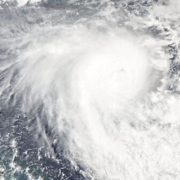Feeling Demotivated? Some Thoughts to Get You Started
By: Brian Harris
There is something about the Nike slogan “Just do it” that inspires. It’s about facing your fears and taking the critical first step.
I once owned a poster that said simply, “A ship in the harbour is safe, but that is not what ships are made for.” Indeed they aren’t. Ecc 11:1-2 urges: “Cast your bread upon the waters, for after many days you will find it again. Give portions to seven, yes to eight, for you do not know what disaster may come upon the land.” That’s about a bent towards action.
In an era when there was a fair chance that a ship that set out to sea would not return, we are told that the risk is worth it. We should cast our bread on the water – despite imperfect odds.
Not that we should put all our eggs in one basket, for we are to give portions to seven, even eight, because we don’t know which plans will ultimately succeed, but we do know that every un-actioned plan will not.
Don’t Use Caution as an Excuse!
Now I have been in far too many discussions not to realise that there is another side to this. “Act in haste, regret at leisure” sums up much of the counter argument. And indeed, poorly conceived ideas that are erratically implemented are unlikely to achieve much.
Some would even cite Jesus in Luke 14:28, “If you want to build a tower, first sit down and estimate its cost to see if you have enough to complete it.”
It’s wise counsel, but I have seen people hide behind it to check that yet another (and another) level of reassurance is provided. They forget that though Jesus gave this instruction, he came to the earth knowing that it would lead to his execution on a cross. I’m not sure that ticks the “due diligence” box. Actually, immediately before Luke 14:28 comes Luke 14:27, “Anyone who does not carry his cross and follow me cannot be my disciple.” That’s not a risk averse strategy.
Make a Start

I’ve now written seven books and jointly edited an eighth. When people ask if I have any counsel to give them, I repeat a throw away comment once made to me. I had been lamenting how hard it is to start writing and how things don’t come out the way you intend. “I know. I know,” my more experienced friend replied a little unsympathetically. “But always remember, you can’t edit a blank sheet.”
It’s brilliant – and its true. Sure, the idea you awkwardly jot down may be far from what you want it to be – but it’s a start. Don’t write it down, and the idea quickly disappears. You are left with nothing.
I was with a group celebrating a significant project that was nearing completion. Very few things had gone to plan, but what had been achieved was impressive. The inevitable question was asked, “So if you knew then what you know now, would you have gone ahead.” “Heck no,” their leader immediately responded. “We would never have got the necessary permission if we had realised all that would be involved.” He then paused, and said with passionate conviction, “And what a terrible mistake that would have been…”
See Obstacles As Opportunities
The Stoics have a little expression that’s worth pondering: “The obstacle is the way.”
In a recent excellent Stirrers and Saints podcast the person interviewed (my youngest son Jett) suggests that rather than try to remove obstacles we should consciously add some – stretching our boundaries, gaining confidence that if the unexpected happens we manage. He is right. You can’t remove obstacles, so why not anticipate them and even embrace them – for if you learn to embrace them they no longer have the power to freeze you into inactivity.
I could carry on, but then you’d quip back, “When all is said and done, far more is said than done,” and that would be fair enough. Why not think about that project you have put off once again. Is it worthy? Will it do some good in the world? Does it reflect the three things Paul assures us will last forever – faith, hope and love (1 Cor 13:13). Enough talking, time to act…
Instead of ending this weeks reflection with my usual “nice chatting”, how about this thought from Richard Foster: “Each activity of daily life in which we stretch ourselves on behalf of others is a prayer in action.”
Happy stretching!
Article supplied with thanks to Brian Harris.
About the Author: Brian is a speaker, teacher, leader, writer, author and respected theologian who is founding director of the AVENIR Leadership Institute, fostering leaders who will make a positive impact on the world.
Feature image: Photo by Annie Spratt on Unsplash

